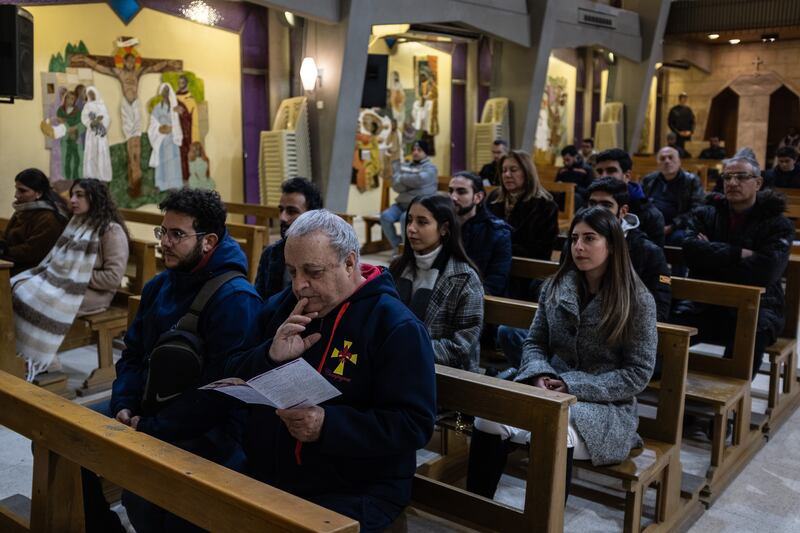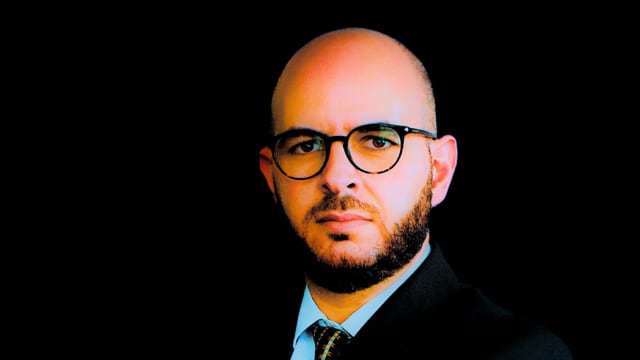In Syria, the fall of the regime of Bashar al-Asad brought joy to many people who had lived through 13 years of intermittent civil war and decades of dictatorship.
However, it also fragmented Syrian territory. Several armed factions now compete for control and legitimacy, and external actors are eager to preserve their regional interests in the midst of chaos.
PUBLICIDAD
The fall of the regime of took place so quickly that it not only caught the Syrians by surprise, but also the international community. This was the case for the geopolitical analyst Aboud Barsekh-Onji, 37 years old, who has been living in Mexico since 2013.
In an interview with Metro World News, he shared a bit of his life in Aleppo and how he perceives the events that changed the landscape and destiny of the country where he was born and raised.
MWN: When did you leave Syria and have you returned since then?
ABO: I left Aleppo on June 1, 2012, when the situation in different parts of the country was beginning to deteriorate. I have not returned to Syria since then.
As a context, popular discontent with the government of Bashar al-Assad triggered pro-democracy protests and demonstrations in March 2011. After months of state repression, several armed extremist groups began to form throughout the country. By mid-2012, the conflict had escalated and talks of a revolution or civil war were already underway.
First, I spent some time in Lebanon because my maternal family is Lebanese. I truly thought that things would improve and that I would soon be able to return. When I realized that the conflict would be prolonged, I decided to emigrate to Mexico in the spring of 2013.

MWN: Nearly three weeks after Bashar Assad's fall, why did it happen so quickly and unexpectedly?
ABO: The Middle East is not a region that, in general terms, reflects stability, neither in recent years nor in recent decades or centuries, amidst dictatorships, monarchies, wars, sectarian conflicts, etc.
We saw it with the invasion of Iraq in 2003, and later with the fall of the leaders of Libya and Egypt in 2011. Now we see it in Syria. It is regrettable that the region has been suffering for many years due to these types of conflicts. Beyond military conflicts, I am talking about conflicts based on ideological and religious beliefs that prevent countries from moving towards a public administration where there is a real separation between religion and the state.
I think their biggest mistake was governing like a dictator. If they had managed the country with that secular vision they had, but in an institutional way, allowing other people and ethnic groups to come to power, history would be different.
However, I also consider that he did good things for the country.
MWN: Could you share more details?
ABO: Syria was one of the countries in the world where you could sleep with the doors of your house open and no one would enter. I am talking about how things were before 2010. Some things, such as quality education and healthcare, were better than in many countries, including Mexico.
Bashar, like his father, was part of the Arab Socialist Ba'ath Party. When they came to power over 50 or 60 years ago, they had a vision of a social structure for the region, separating religion from the state. People were truly seeking to break free from the bubble of religion and move towards a more modern environment.
The problem was that, as happened in other parts of the world with other countries with socialist governments, they began to move away from the principles of socialism and democracy.
MWN: What was it like to live in a country ruled by the Assads?
ABO: Hafez al-Assad, father of Bashar al-Assad, who ruled for three decades, began to favor his religious group, the Alawites, an ethno-religious group that separated from Shia Islam during the 9th century.
Their government, as well as Bashar's, were characterized by protecting the country's minorities, such as Catholics, Armenians, Kurds, Druze, etc., as they themselves were part of a minority in a country where the majority of the population are Sunni Muslims.
It may sound harsh, but I don't believe that democracy is necessarily synonymous with well-being. Would you prefer a country ruled by a dictator, but where you have everything you need to live well, or a country where there is a certain degree of democracy, but the country is not doing well socially or economically?
The Asads ruled like kings but, to a certain extent, continued with the discourse that they were leading a republic. It was their big mistake to keep insisting that they were at the head of a republic without making institutional changes.
MWN: If things were relatively good in Syria, why did they experience the so-called Arab Spring?
ABO: At that time, there was opposition in Syria represented by different parties, made up of groups and individuals from different ethnicities and religions, but they never sought a change through weapons. In fact, there was a certain fear in the country even to speak ill of the government. The State's intelligence apparatus was very strong and people did not think or imagine that one day it would be possible to overthrow the government or that the Arab Spring would reach Syria.
However, people from other countries with extremist ideas started to arrive, with military and financial support from extremist groups and even individuals from different countries, Arabs, non-Arabs, Westerners, etc. And that's when things started to spiral out of control.
Some of these extremist or terrorist groups openly talked about creating an Islamic state in Syria, or returning the region to the era of Muslim caliphates. Many centuries ago, Syrians were not Muslims; Islam came to Syria through the expansion of these caliphates, which imposed their religion, language, and many of their customs. So in a way, what happened and what is happening in Syria is something that the region has experienced before.
MWN: Many people celebrated the fall of Bashar al-Asad, or at least those were the images that circulated around the world...
After the fall of the regime, we saw scenes of partying and celebration, even in the historic Umayyad Mosque in Damascus, by some groups. Now the Sunnis have the control that was taken from the Alawites.
But as I was saying before, it's a struggle that has lasted for centuries, and among the different factions vying for power in Syria, there are some that want, or at least a few years ago they claimed to want, to create an Islamic state in the country. In other words, a state governed by Sharia law or Islamic law.
I believe that what happened in Syria was the reincarnation of conflicts that have been going on for centuries, beyond just wanting to overthrow a dictator. It has mostly religious connotations. This explains how extremist groups, some officially classified as terrorists, got involved and received large amounts of weapons and money to enter the country and overthrow a regime that represented the Shia presence in Damascus, which was the capital of the Umayyad Empire.
It cannot be said that the entire Syrian population took to the streets to celebrate Bashar's fall. Many people have taken a neutral or cautious stance, as uncertainty now reigns. If we only rely on what we see in the media, the scenes in Syria have already been witnessed and experienced in Iraq and Libya. And the changes were not necessarily for the better. Why should we believe that Syria will be better now?
MWN: What's next for Syria?
ABO: There is a lot of uncertainty. People don't know what's coming next, after the fall of a government that was in power for over 50 years. While the new authorities say they are progressive and want a united and inclusive Syria, people are not entirely sure that this is what will come.
In fact, different parts of Syria are under the control of different groups and individuals, so there will undoubtedly be a stage of instability and transition that could last for decades, in an environment of different geopolitical interests that directly affect the country. The only solution would be to establish a pragmatic technocratic state, and sadly what "the rebels" started to do does not seem to be heading in that direction.
Unfortunately, I believe it will take 20 years before Syria returns to the stability it experienced under Assad's rule. In the end, it could be a negotiation, a planned handover... trading one thing for another. That would explain the speed at which things unfolded a few weeks ago.
* Aboud Barsekh-Onji is a Mexican researcher, communicator, and engineer of Syrian origin, specializing in geopolitics, technological innovation, and energy management.
